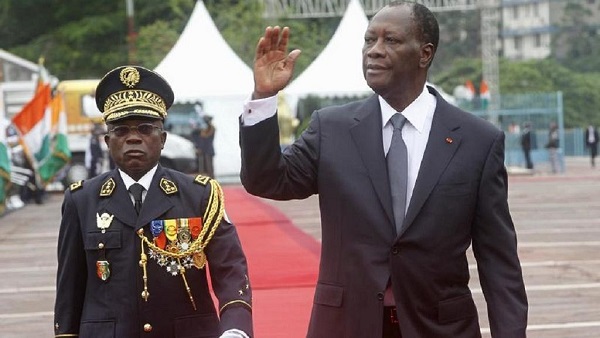Ivory Coast police fired teargas on Monday to disperse pupils and students protesting at government ministries in the main city, Abidjan, as nationwide strikes intensified, police and a senior union official said.
Ivory Coast, French-speaking West Africa’s largest economy and the world’s top cocoa grower, is facing a growing wave of public sector strikes that threaten to paralyze the country and undermine an impressive post-war economic recovery.
“Our men dispersed the protesters … who were stopping workers going to their jobs in the ministries,” said a senior police official who asked not to be named. “They were obliged to use teargas.”
He said the protesters were young people claiming to be aligned with the FESCI student union.
“These were pupils who had gone to the Education Ministry to find a solution so that their teachers could get back to work,” said Theodore Zadi Gnangnan, the president of a grouping of more than 100 civil servants’ syndicates.
Under the leadership of President Alassane Ouattara, who came to power in the wake of a 2011 civil war, Ivory Coast has emerged as one of the world’s fastest growing economies. But his critics say only a fraction of Ivorians have benefited.
The involvement of the FESCI – aligned with the Young Patriots street militia, which opposed Ouattara during Ivory Coast’s 2002-2011 political crisis – marks a significant escalation of the strike movement.
Young men entered school campuses across the country on Monday, forcing children out of classrooms. Pupils and high school students took to the streets in several cities.
Ivorian public school teachers went on strike last year.
They were joined last week by civil servants across the country, whose demands included salary increases, the reversal of a reduction in pensions, and payment of unpaid wages they say total around 243 billion CFA francs ($393 million).
Disgruntled soldiers, meanwhile, said they had still not received bonuses the authorities had promised to begin paying on Monday as part of an agreement to end an army mutiny earlier this month, raising the specter of further unrest.
A member of parliament in Bouake, the second largest city and the epicenter of the mutiny, said he had briefly been abducted on Monday by soldiers angry that they had not yet been paid.
“We have no news. We’ve been waiting for the money since this morning, but we don’t have anything yet,” said one of the leaders of the mutiny.
Source: Reuters


